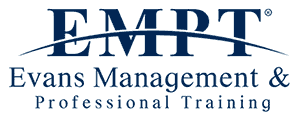Latest News from the EMPT London Blog

Personal Development Plans
Current Fostering National Minimum Standard 20.5 requires that foster carers’ personal development plans set out how they will be supported to undertake ongoing training and development that is appropriate to their development needs and experience. These standards also (NMS 20.6)

Alternative Views of Management
Approaches to management used in social care have been influenced by many years of management theory. For years management studies have examined management practice to distil the principles and practise of good management. Identifying such principles and practises can help

TSD 5.3 (C): Being ‘able to work with young people to develop skills, self-confidence and knowledge to prepare them for adulthood and independent living’
A good level of independent living skills are essential, as care leavers struggle to reach the same levels of educational attainment as their peers and often find it difficult to make a successful transition to adult life. They are overrepresented

Champion equality, diversity and inclusion
Learners who attempt to achieve the Level 5 Diploma in Leadership for Health and Social Care and Children and Young People’s Services (England) come from a range of leadership backgrounds including: Registered Managers Managers Assistant managers Deputy managers Senior care/support

Existentialism and Responsibility for Your Actions
Existentialism is a radical philosophy which takes our life issues as its central focus. From an existentialism perspective despite people being in this world without their prior consent – it’s up to us to create our life’s meaning. According to

Reflective learning from lived experience
There’s always new knowledge, beliefs, values and skills for learners to acquire and this in turn may also result in learners having to unlearn older knowledge or skills. This means that unlearning may involve going back (reflecting) to where you

Supporting People Experiencing Mental ILL Health
Knowing about factors related to Mental ill health as well as Physical health, can contribute to promoting the wellbeing of individuals. Experiencing mental ill health may involve having to face personal transitions, that are not necessarily shared or understood by

Online Safety
Online safety In online environments and when using technology such as computers, mobile phones or games consoles – online safety is an essential element of safeguarding children and young people as well as vulnerable adults. Online safety is not about
Quality Assurance
We offer a range of courses delivered by trainers with experience and a sound working knowledge of their field
Consultancy
We listen and provide support tailored to your organisation’s needs
Training
We listen and provide support tailored to your organisation’s needs
Development
We offer management consultancy, training and development in health and social care
WHO WE ARE
EMPT are committed to empowering people and promoting equality and inclusion. EMPT provide high quality services, reflective in our training and management resources that presently meet our customers’ needs. We endeavour to ensyre that those who do our work are representative of the community we serve.
WHAT WE DO
We offer training, management consultancy/solutions services. EMPT provides a peer mentoring service. We specialise in social care. EMPT provides a service that tailors for corporate and individual needs. We have a wealth of experience and are imaginative and resourceful in our training course provision.
ADVERTISE WITH US
EMPT are committed to empowering people and promoting equality and inclusion. EMPT provide high quality services, reflective in our training and management resources that presently meet our customers’ needs. We endeavour to ensyre that those who do our work are representative of the community we serve.
SERVICES PROVIDED
Health and social care courses which covers issues about issues related to practice. This includes a variety of traditionally delivered training courses around the National Occupational Standards and qualifications for health and social functions as well as the Training Support and Developments Standards.
